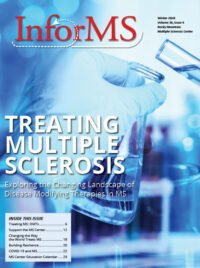A Lifelong Practice for Coping with Stress and Anxiety
As we reflect on the past year, some words and emotions are likely to surface for many of us right away: challenging, overwhelming, anxiety-inducing, tumultuous, uncertain, and stressful. Navigating these times has magnified the importance of building our resilience and cultivating coping strategies to maintain our wellbeing.
Chronic stress takes a toll on our bodies. The stress response system floods our body with hormones – primarily cortisol and adrenaline. This is an innate and important mechanism humans have developed to respond to and protect ourselves from dangers and threats that we face. But, the stress response system is supposed to shut off and allow our metabolism to return to normal.
When our bodies don’t have time to recover from stress, it causes problems. With chronic stress, the system doesn’t get to shut down, and this causes chronically elevated levels of stress hormones, especially cortisol. This results in all kinds of health problems from altered thyroid function to heart disease. Chronic stress is also bad for the brain. It can alter our neurochemistry in ways that contribute to depression and can interfere with our ability to make new brain connections. Lower level persistent stresses are associated with increased risk of MS exacerbations. Chronic stress impacts our brain and anything that decreases it helps your overall wellbeing.
Building our “toolkit” with stress relief and coping strategies – and practicing them in both good times and bad – is critical for building resilience to deal with life’s inevitable challenges. Exercise is an excellent stress reliever, especially aerobic exercise. Stress reduction and mindfulness techniques, such as meditation, can also relieve stress and are potentially brain building – it requires concentration and focused attention and can actually improve frontal lobe functioning. Mindfulness refers to a range of different strategies for focusing awareness and attention. And getting quality sleep each night is an important and fundamental stress reliever.
Sometimes chronic stress causes people to be too overwhelmed to focus on things they could do to help. Another important tool to consider is therapy – talking with a professional therapist can help people navigate challenges and manage priorities. Depression and chronic stress overlap and can aggravate each other. Medications that help with depression can also help with stress management.
There are many stress relief strategies and mindfulness tools and we’ve outlined some of them here. Your stress and anxiety relief “toolkit” will be unique to you: Not all strategies will resonate or appeal to you and that’s okay. Try them out, see what works, what doesn’t, and what you might want to try again. It is an ongoing process and it is very important to be kind, patient, and compassionate with yourself.
Relaxation on the Run
Relaxation is an important way to reduce stress and tension levels and to cope with negative emotions. Sometimes making time for relaxation is difficult. Here are some ideas for quick relaxation:
- Take deep breaths, focus attention on breathing rather than your thoughts
- Repeat a key word you associate with relaxation
- Scan your body for tense spots and relaxing them
- Put a picture of a relaxing place where you can see it
- Call a friend or other supportive person
- Practice yoga or tai chi techniques
- Remind yourself “I’m not alone”
- Positive helpful affirmations (e.g. “I’m calm and relaxed,” “I can do this”)
- A breathing exercise, such as “Take Ten Breaths” below
Source: GPA South Gippsland Self Care Strategies Workbook August 2009
Take Ten Breaths
Throughout the day, pause for a moment and take ten slow, deep breaths. Focus on breathing out as slowly as possible, until the lungs are completely empty, and breathing in using your diaphragm.
Notice the sensations of your lungs emptying and your ribcage falling as you breathe out. Notice the rising and falling of your abdomen.
Notice what thoughts are passing through your mind. Notice what feelings are passing through your body.
Observe those thoughts and feelings without judging them as good or bad, and without trying to change them.
Notice what it’s like to observe those thoughts and feelings with an attitude of acceptance.
Source: Acceptance and Commitment Therapy Introductory Workshop Handout 2007. Dr. Russell Harris, M.B.B.S, M.A.C. Psych. Med
Six Ways to Practice Grounding to Cope with Anxiety
- Body: Lay on the ground, press your toes into the floor, squeeze play dough
- 5 Senses: Wear your favorite sweatshirt, use essential oils, make a cup of tea
- Self Soothe: Take a shower or a bath, find a grounding object, light a candle
- Observe: Describe an object in detail: color, texture, shadow, light, shapes
- Practice: 4-7-8 Breathing: Inhale to 4, hold for 7, exhale to 8
- Distract: Find all the square or green objects in the room, count by sevens, say the date
Source: The Growlery
Apps
There are many mindfulness, meditation, and relaxation apps available for iPhones and Androids. Some of the most highly-rated are:
- Headspace
- Calm
- Mindfulness Daily
- Insight Timer
- Waking Up: Daily Meditation
- iMindfulness
- MyLife Meditation
Podcasts
Podcasts are another great resource. They’re sort of like mini-audio books that you can download and listen to when you need a bit of inspiration or motivation. Another helpful thing about podcasts are that you can listen to them even while performing routine tasks like driving, cooking, doing chores, or taking a rest. Each of these podcasts and apps are FREE to download.
The Daily Shine
A daily “podcast-meets-meditation” aimed at helping people struggle less with stress and anxiety. Incorporates breathing exercises, practical and brief meditations, and self-care practices.
Daily Meditation Podcast
Meditation coach, Mary Meckley, provides “daily meditation inspiration and guidance in how to make meditation a natural part of your day…not something that interrupts your day.”
The Mindful Kind Podcast with Rachael Kaeble
Mindfulness mentor Rachael Kaeble hosts this free podcast aimed at empowering people to live more mindfully in fun, simple and meaningful ways. Topics include self-care strategies, finding life balance, cultivating resilience, and goal-setting.
Sleep With Me Podcast, The Podcast That Puts You To Sleep
This is a free podcast of “lulling, droning, boring bedtime stories to distract your racing mind,” and they do just that. They are really boring. And they are also quite amusing.
To download any of these podcasts, go to your favorite podcast website or app and search for the names above.







